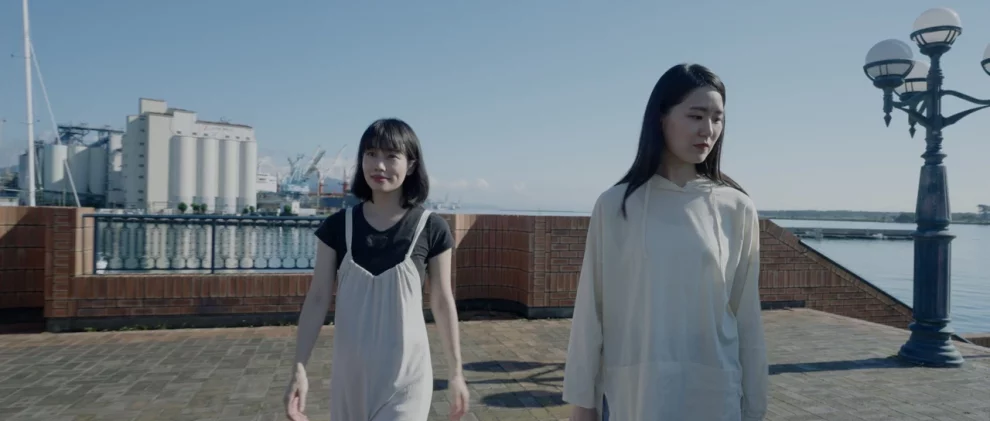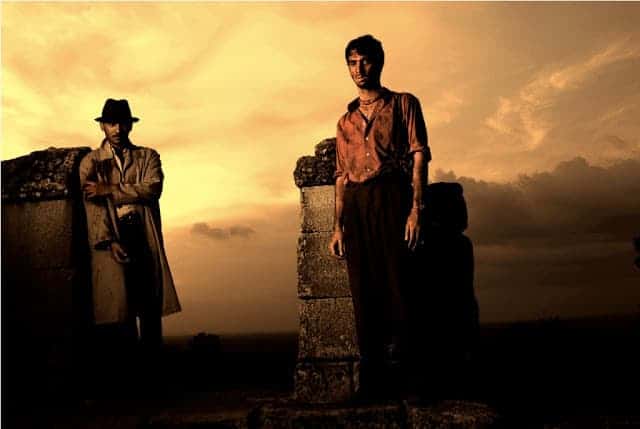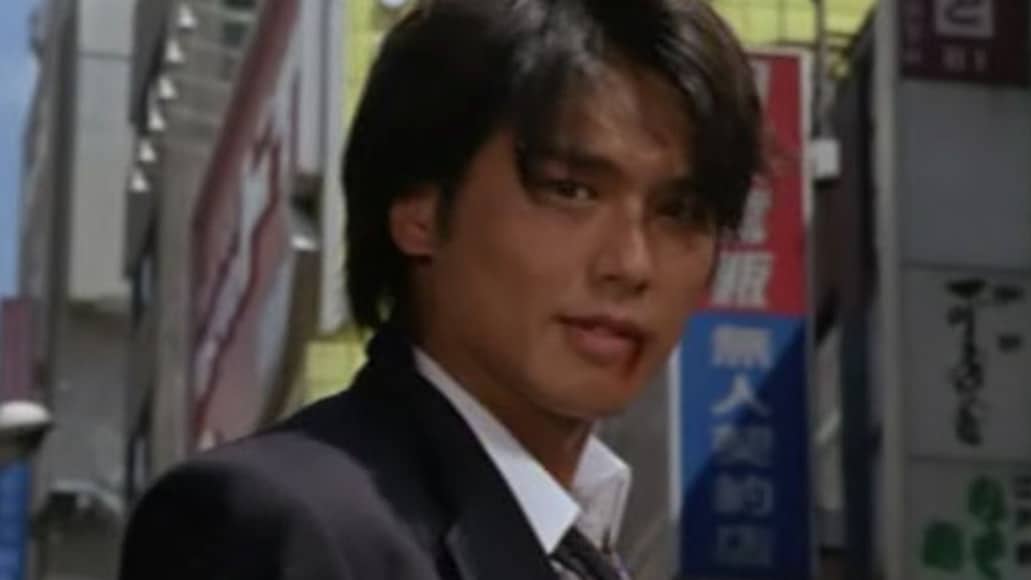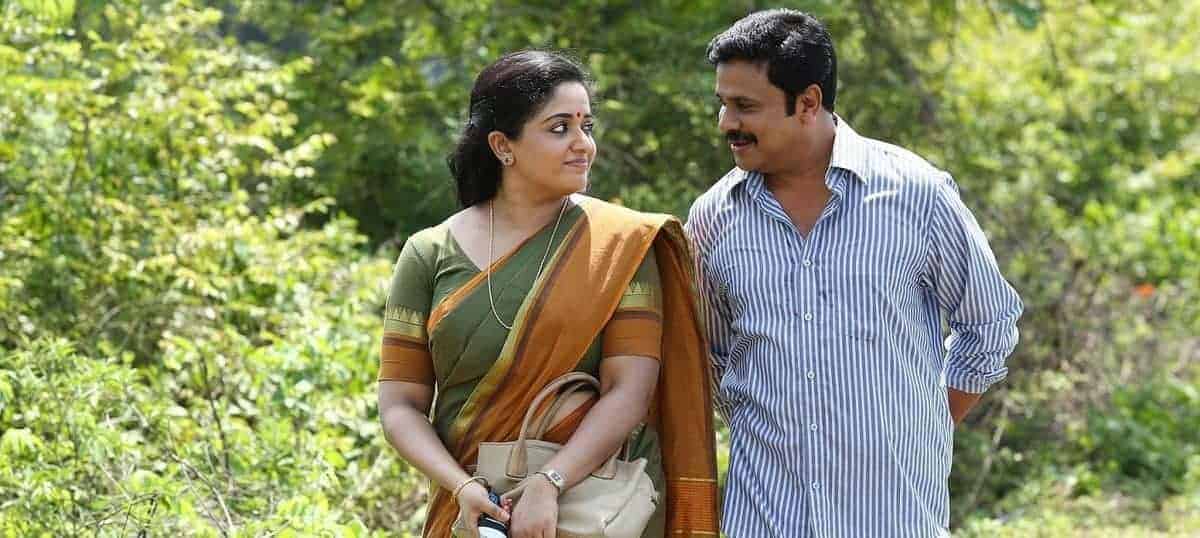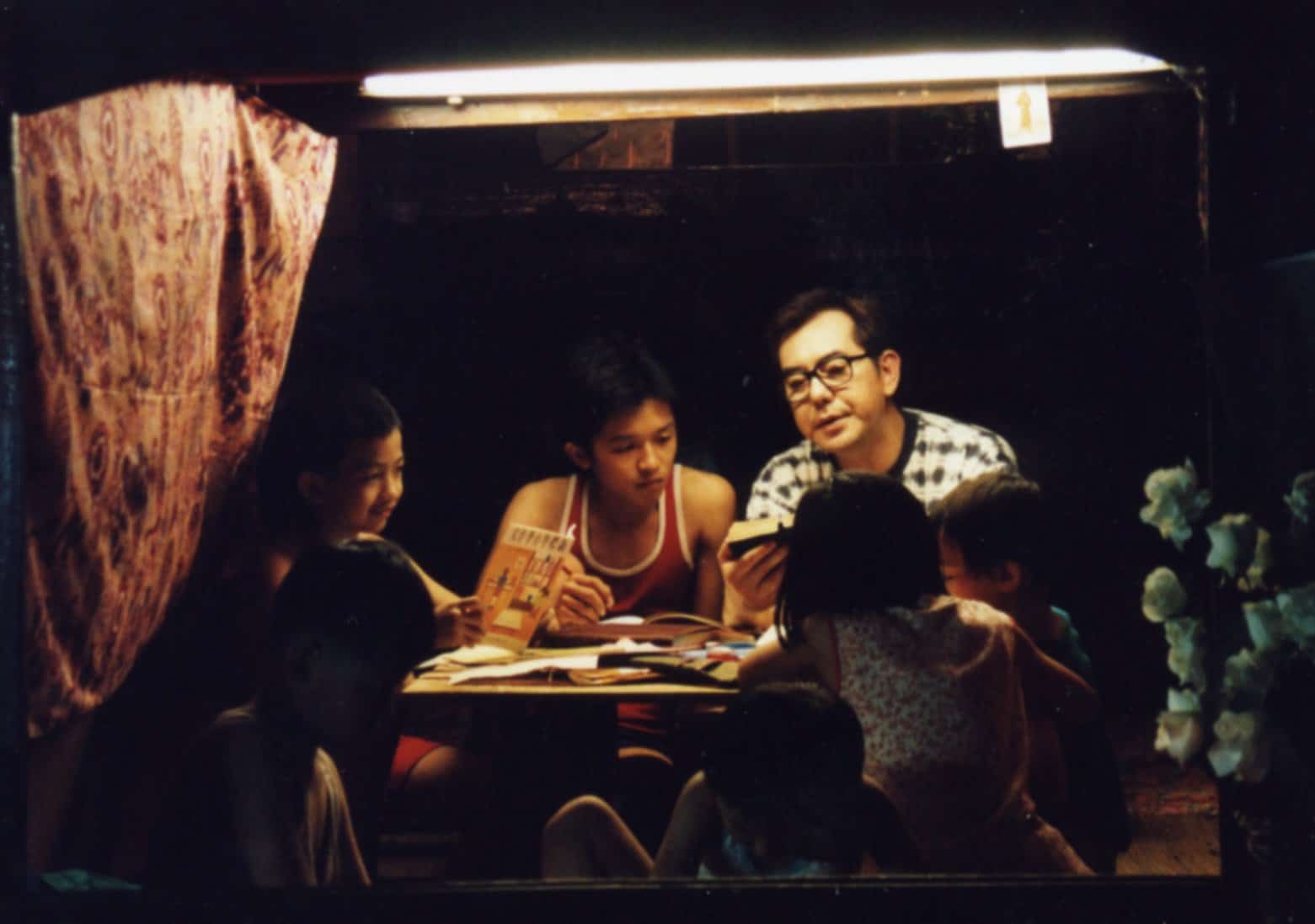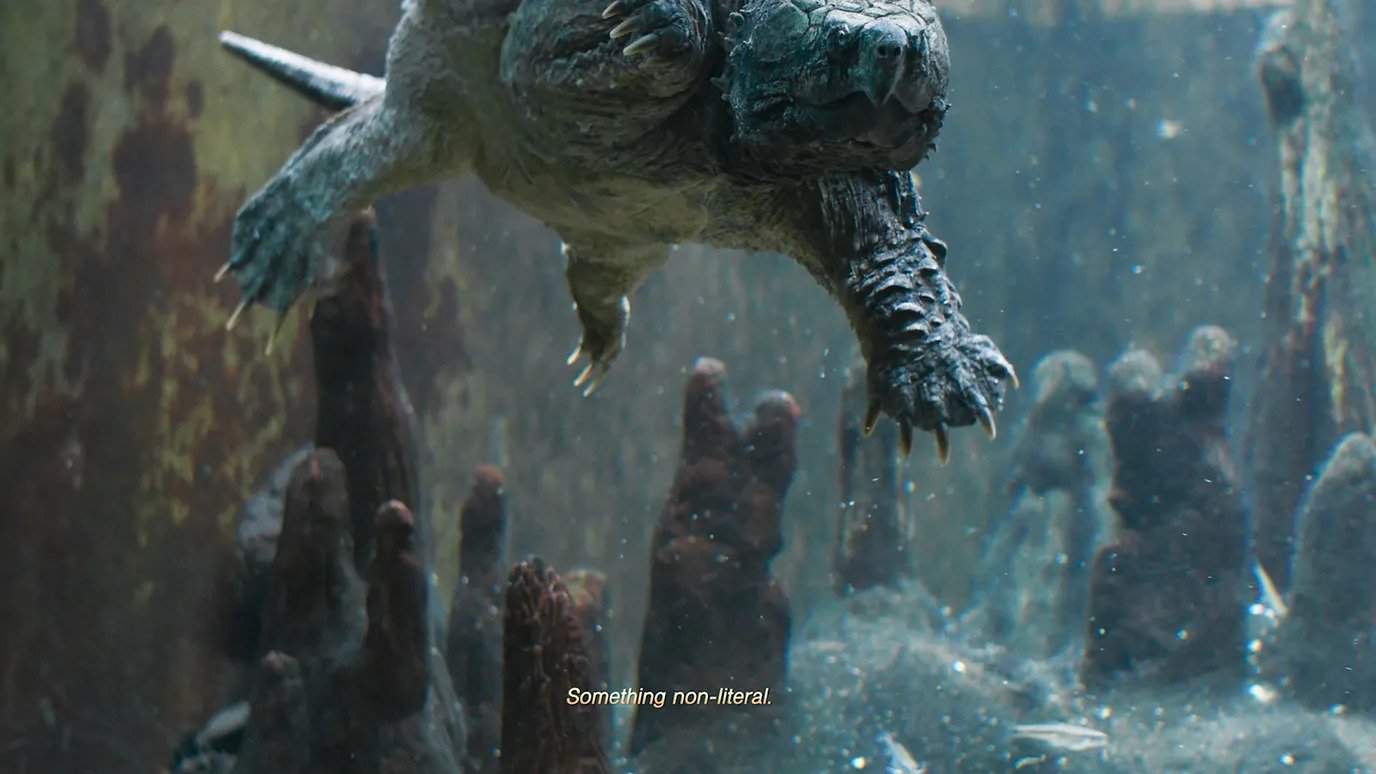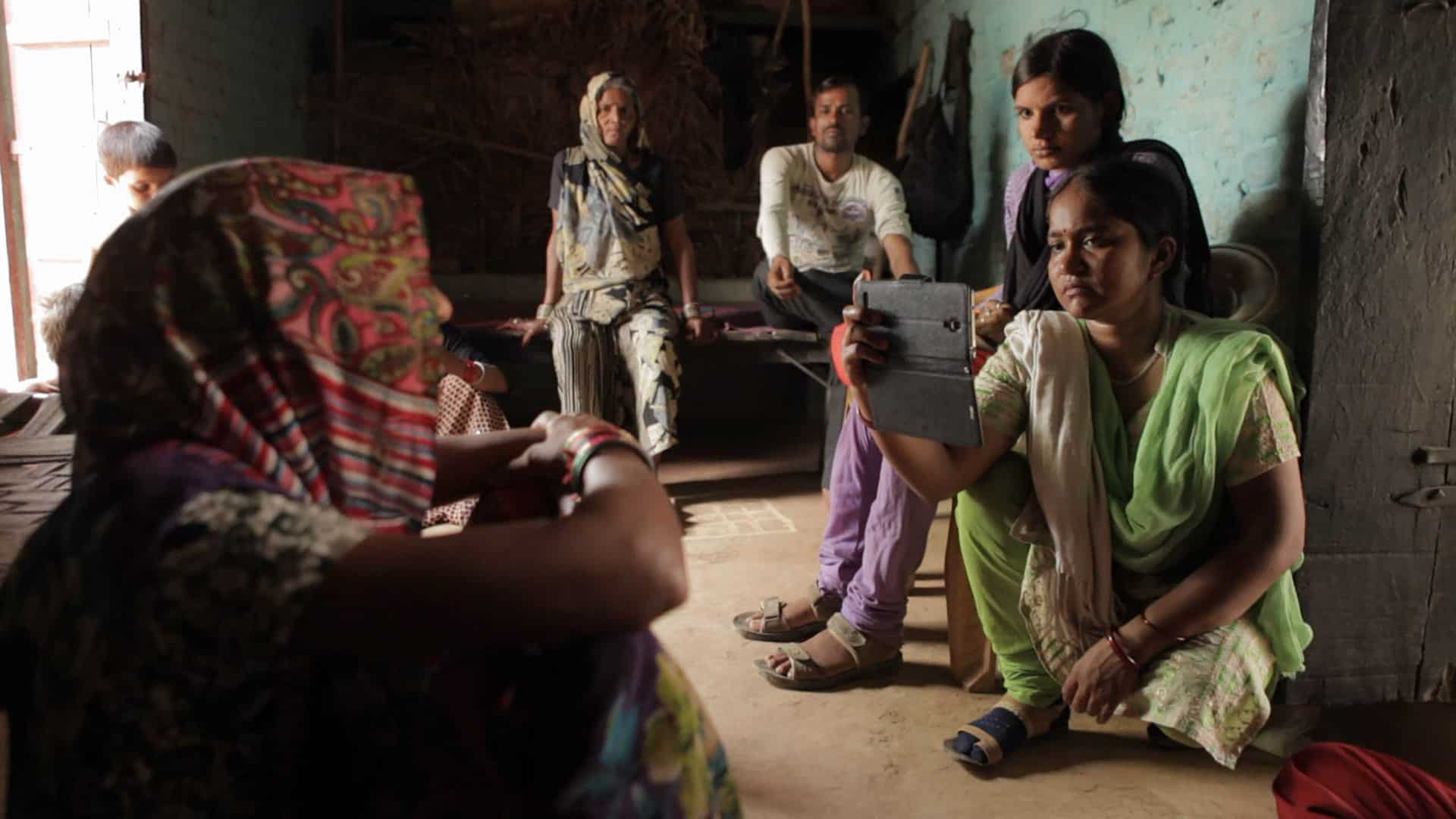Shot on location in beautiful Miho Matsubara in Shizuoka, Japan, “Unplayed Lullaby” was made for just over $10,000.00 and was produced by the two leading actresses, Kozue Ito and Nana Akuzawa, alongside the writer/director, Steven J. Martin. The film is scheduled for a premiere in the U.S. July 28th, 2022 and in Japan this winter.
“Unplayed Lullaby” review is part of the Submit Your Film Initiative

The movie tells the story of two lonely women, Sara, who is a hikikomori, and Sae, who is rather guarded and has to face a series of family issues. Their friendship is initiated by the former who “pesters” the latter over 5 days, in an intense effort for the two of them to come close. To do so, she asks Sara to tell her her most deep secrets, before she starts revealing her own. Gradually, the two form a bond, in a setting that borders on the surreal, much like their overall interaction.
The film is quite theatrical in its presentation, since the narrative mostly consists of the two girls discussing various topics, and in general, interacting with just each other. In order to make things more cinematic, though, Steven Martin has implemented a number of “tricks”. To begin with, the movie takes place in various locations, both indoors and outdoors, with particularly the latter being quite impressive, visually, on occasion, as in the case of the beach, the Ferris Wheel, the lighthouse and a number of others. In that regard, DP Kimiaki Ogawa has done a great job in framing her protagonists in a way that both connects them with their environment and provides a relief from the one-on-one narrative. The second is Martin and Ogawa's editing, with the occasionally rapid cuts, which frequently lead to sudden transfers in different locations, as in a room the two seem to share, giving a sense of movement and speed to the film. The third one is some scenes that show the two with other people throughout the movie, particularly Sae with her husband and mother-in-law, in yet another “relief”.

The most intriguing part of the movie, however, is the dialogues themselves, and particularly the way the two protagonists get to know each other intimately, while evoking sympathy from the viewer. In that fashion, the quite direct and almost offensive way Sara tries to become a friend with Sae, asking her to reveal her most intimate secrets even though they do not know each other, emerges as rather amusing, particularly because after a point, the latter seems to also want to open up and be friends with someone. Throughout the film, we get to know about the reasons one is a shut-in and the other depressed, with the concepts of family, marriage, trauma, and friendship being the most dominant, among a number of secondary ones. The level of intimacy the two achieve in the end is actually surprising, as much as the ending that concludes the film in a bittersweet fashion, essentially adding to its overall realism.
Also of note is the way Martin has implemented humor in the movie, which is frequently interspersed with sex talk, in a style that could be crude but in the hands of the two girls emerges as both hilarious and adorable. Particularly the talk about the sumo wrestler and Sara's husband is bound to make anyone laugh, as much as Sae's religious dealings, for example the moment he asks Jesus not to gain weight no matter how much ice cream she eats. This mixture of drama and comedy is concluded with another element, the permeating magic realism that characterizes the story, which seems to move beyond time, space, and even reason on occasion.
At the same time, at 80 minutes, and with its dialogue heavy approach, the movie somehow overextends its welcome, with the constant talk becoming a bit monotonous after a fashion, again in a style that seems more theatrical than cinematic. On the other hand, the performances of Nana Akuzawa as Sara and Kozue Ito as Sae, as much as their evident, antithetical chemistry, compensate significantly, dulling the aforementioned issue.
“Unplayed Lullaby” is funny, intriguing, and visually appealing. In the end, though, whether one will like the film depends on how theatrical one likes his movies.


